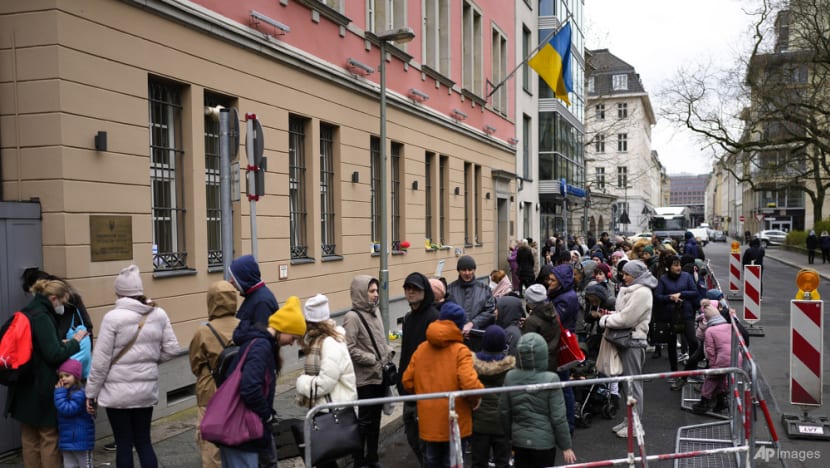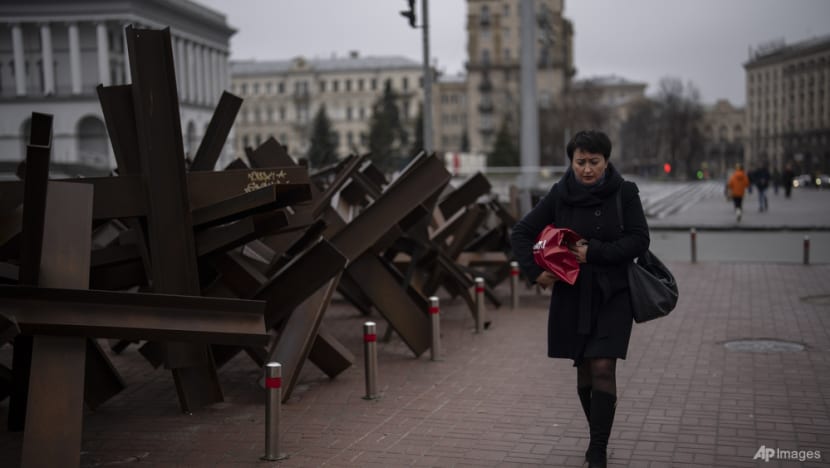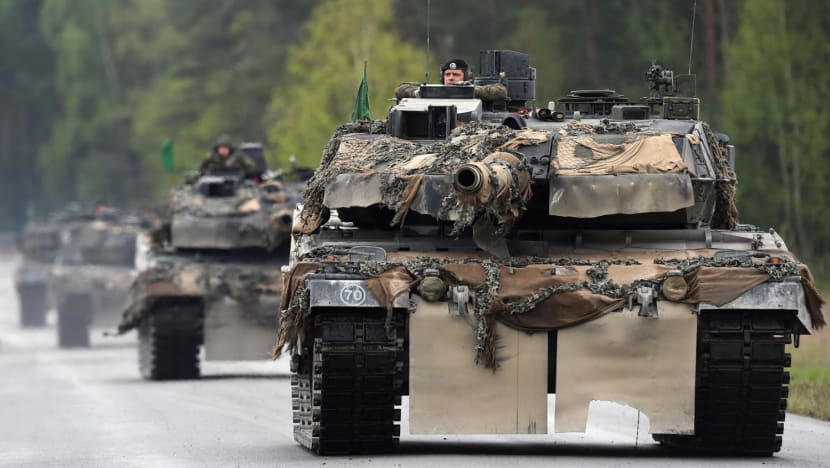Germany houses Ukrainians fleeing war; Europe faces largest humanitarian crisis since World War II
More than one million Ukrainian citizens have fled to Germany since Russia invaded almost a year ago.

BERLIN: There has been a rise in humanitarian support in Germany for civilians in Ukraine who continue to bear the brunt of the near daily barrage of bombs and missiles.
As the one year anniversary of Russia’s full-scale invasion of Ukraine approaches, the regular aerial bombardment is placing severe pressure on critical infrastructure.
Key necessities, such as heating, electricity and water supplies, are facing disruption just as winter is really starting to hit.
More than one million Ukrainian citizens have fled to Germany since Russia invaded almost one year ago.
In response, much of Germany has mobilised, for instance, by repurposing state-funded facilities like a former airport to provide shelter. Charities and community groups are also doing their part to contribute to the cause.
AID FOR UKRAINIAN CIVILIANS
One of the hangars at Berlin’s Tempelhof Airport, which opened in 1923 and ceased operations in 2008, is being converted to help those fleeing the war in Ukraine.
The emergency accommodation, which can house up to 1,600 people, was built by German authorities in anticipation of an expected wave of winter refugees.
The facility is simple in design, as speed and scaling up is the main priority.
Berlin mayor Franziska Giffey said: “We hope that the war in Ukraine will stop but we cannot see it. We have to prepare by giving people what they need, including accommodation, in this very hard situation.”
She added that while the city has “a big target” and is trying to handle the situation as best as it could, it has drawn clear lines, such as not using sports halls for refugees.
GROUND-UP CAMPAIGNS
Apart from government efforts, campaigns by individuals are also making a difference.
Mr Sergej Sumlenny, director of the European Resilience Initiative Centre, spent years working in Ukraine with non-governmental organisations.
Seeing the vast needs of the country he once called home, Mr Sumlenny used the pre-Christmas period to raise almost US$14,000 through an online campaign.
He used the money to purchase rechargeable power units for people in Ukraine, so that they can be used by civilians to cook a hot meal and keep the lights on, even as the country goes through regular blackouts in the depths of winter.
“I have a lot of friends in Ukraine. I have my former colleagues there. I know Ukraine well because I lived there and worked there for six years,” said Mr Sumlenny.
Speaking to CNA before he set off on an 18-hour solo train journey from Berlin to Kyiv to personally deliver the devices, he said he was “not anxious” about swapping the safety of the German capital for a conflict zone.

“I will go through the cities that I visited before the full-scale invasion. I think it will be a hard feeling because I remember them in their blooming time before the war and now I will see these areas destroyed,” he said.
Having safely delivered the items, he said the experience was “very moving” and that “when you live in a city where you have a constant energy supply, you can imagine how much happiness these simple devices could bring to the people".
COMMITMENT TO HELPING UKRAINE
Senior German officials have said Europe has not faced a humanitarian crisis like this since World War II.
It is a test of Germany’s social services and the European Union’s solidarity, and German political leaders have said that the support for Ukrainians will remain firmly in place for as long as it is needed.

Beyond humanitarian support, Germany will also provide Ukraine with firepower that experts have called a potential game-changer in a stalemate situation.
Germany confirmed on Wednesday that it will send 14 Leopard 2 tanks to Ukraine, and also allow other countries to send theirs.














